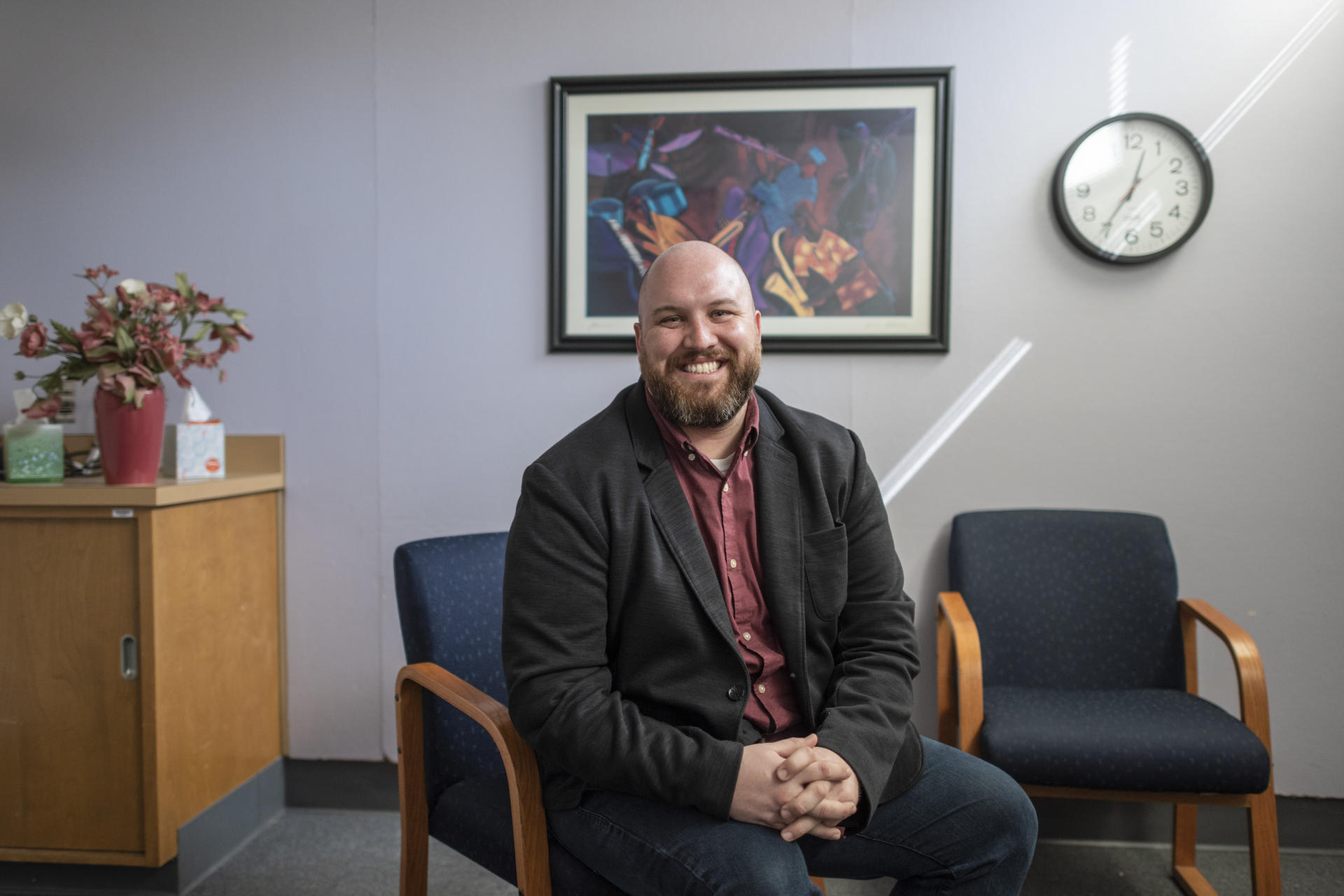University’s MFT Graduate Program Awarded Four-Year, $650,000 Grant

Department of Psychology Assistant Professor, Marriage and Family Therapy Program Kyle Horst, PhD, LMFT, who wrote 6 “tips” to helping someone in pain/suffering for the upcoming Chico Statements magazine is photographed in the Counselor Training Center on Friday, March 15, 2019 in Chico, Calif. (Jason Halley/University Photographer/CSU Chico)
Amid the growing call to address the community’s behavioral health needs, the demand for more highly skilled and trained providers is increasing. To help those in our community, California State University, Chico received a federal grant to further provide its Marriage and Family Therapy (MFT) graduate students with vital education and training.
The University’s Psychology Department’s MFT graduate program has been awarded a four-year, $650,000 grant from the Human Resources and Services Administration (HRSA), an agency of the U.S. Department of Health and Human Services.
The HRSA’s Behavioral Health Workforce Education and Training (BHWET) Program for Professionals funding is aimed at the agency’s primary mission of improving health care to people who are geographically isolated, or economically or medically vulnerable.
Grant funds will primarily be distributed to 40 third-year MFT graduate students as stipends of $10,000—each year of the program, up to 10 MFT students will be awarded a stipend. Students who receive stipends will be expected to complete their traineeship at a community organization that provides behavioral health services to vulnerable and underserved populations. The stipend project will be co-directed by Department of Psychology faculty members Kyle Horst and Matt Withers.
Locally, the BHWET Program will help the University’s MFT graduate students develop partnerships with the Butte County Department of Behavioral Health, as well as other community organizations, and learn how to best meet the behavioral health needs of the community’s most vulnerable.
Horst, coordinator and advisor in the University’s Department of Psychology, said the MFT program has administered a state-funded stipend program—with a few year-long gaps—funding 58 students from 2008 to 2018. What sets this current federally funded stipend program apart is who gets it and when.
“This one differs in that it is awarding funds to current students as opposed to graduates,” Horst said. “Awardees have remarked how much more helpful funds would have been during their program, and we are happy to begin doing so.”
And while the stipends will help current students financially while they receive hands-on training at a community agency, the hope is that those students will also remain there after they receive their degrees.
“Not only is this funding helpful to our students, it will also help our community’s most vulnerable by helping to fill much needed workforce demands,” Horst said. “Student trainees are exponentially more likely to stay at the site they are training at post-graduation.”
CSU, Chico prioritizes the mental and behavioral health of its campus community, as well as that of the wider Butte County community. The Wildcats Thrive initiative is a multi-departmental effort to promote holistic wellness across all divisions of campus; the MFT program’s Counselor Training Center (CTC) provides free individual, group, couple and family therapy services to the campus and community; and the Department of Psychology’s undergraduate internship program partners with many local agencies that provide behavioral health services.
“I’m hopeful that we can make Chico State a place known for valuing the biopsychosocial health and well-being of all its community members,” Horst said.


